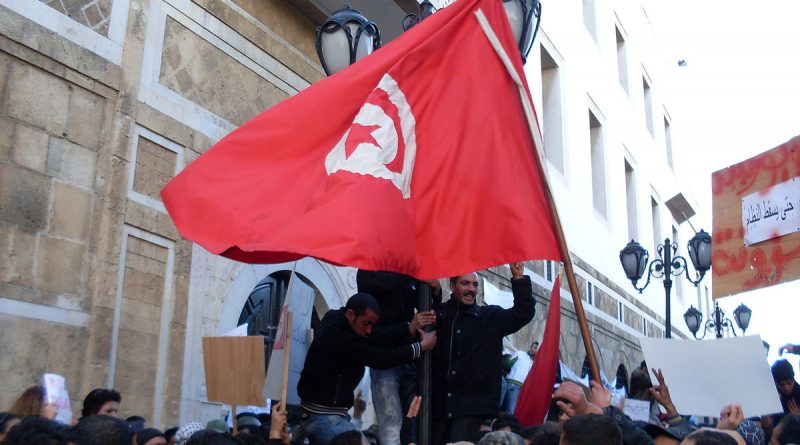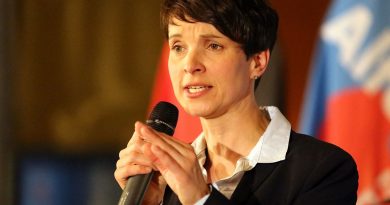10 Things to Read About Tunisia’s Democratic Transition
1. The ‘Arab Spring’ and its roots
In my Master’s thesis, I defined the ‘Arab Spring’ as a socio-economic and political phenomenon that emerged in Tunisia in late 2010 and which spread rapidly through the Middle East and North Africa. Popular revolts and contestations demanded the end of corruption and better working and living conditions for the population. This lead to the withdrawal of the political elite in command for several decades – such as the Tunisia of Zine El Abidine Ben Ali, the Egypt of Hosni Mubarak, the Libya of Muammar al-Gaddafi, or the Syria of Bashar al-Assad.
For a better understanding on the beginning of the ‘Arab Spring’, I recommend George Joffé’s 2011 article The Arab Spring in North Africa: origins and Prospects, where the author “seeks to demonstrate that, although economic circumstances have formed an essential background to the events taking place in North Africa in the first eight months of 2011, they are not a complete explanation in themselves.”
2. Civil Society Organizations’ Role
It is transversal to almost all the researchers working on the process of democratization in Tunisia that its success is largely due to the organization and mobilization of its civil society, highlighting the role of the Union Générale Tunisienne du Travail (UGTT). To this end, Shelley Deane made a retrenchment of Tunisia’s civil society organizations in the period of the democratic transition, entitled Transforming Tunisia: The Role of Civil Society in Tunisia’s Transition.
3. Freedom and Rights
In May 2015, Freedom House awarded the status of “Free” for the first time to Tunisia, claiming that “political rights rating improved from 3 to 1 and its status improved from ‘Partly Free’ to ‘Free’ due to the adoption of a progressive Constitution, governance improvements under a consensus-based caretaker administration, and the holding of free and fair parliamentary and presidential elections, all with a high degree of transparency”.
4. Women in the Frontline
CEI-IUL researcher Giulia Daniele addresses feminist activism in Tunisia in an understandable way, including statements by activists and representatives of women’s associations such as the Association des Femmes Tunisiennes pour la Recherche sur le Développement (AFTURD) or the Association Tunisienne des Femmes Démocrates (ATFD). For further research, I suggest Mounira M. Charrad in particular (or together with Amina Zarrugh), Andrea Khalil, and Valentine M. Moghadam.
5. Women’s Rights Struggle
Mounira M. Charrad and Amina Zarrugh with their 2013 article The Arab Spring and Women’s Rights in Tunisia, or Mounira M. Charrad with a pre-revolution book on States and Women’s Rights: The Making of Postcolonial Tunisia are safe choices to learn about women’s rights struggle in the country. I still highlight Mounira M. Charrad’s 2012 article on Family Law, Family Law Reforms in the Arab World: Tunisia and Morocco.
6. The Ennahda Mouvement
Last September, Rached Ghannouchi, co-founder of the Ennahda Mouvement, wrote in Foreign Affairs Magazine From Political Islam to Muslim Democracy: The Ennahda Party and the Future of Tunisia, an interesting must-read about the main party on Tunisia’s democratic transition – written by someone who lived it all.
7. October 23, 2011: National Constituent Assembly Elections
The Carter Center and the International Republican Institute were two institutions that monitored, controlled and reported the first free and fair elections in Tunisia with the aim of forming a National Constituent Assembly that would write the new constitution and govern the country during its democratic transition. Their reports are quite accessible and provide the reader, in addition to the results, with a detailed assessment, recommendations, and analysis of the pre and post-election spirit.
8. The Solution: The Tunisian National Dialogue Quartet
In 2015, the Tunisian National Dialogue Quartet received the Nobel Peace Prize from the Norwegian Nobel Committee for the work done during the country’s peaceful democratic transition. In the words of the Committee, the Quartet “established an alternative, peaceful political process at a time when the country was on the brink of civil war. It was thus instrumental in enabling Tunisia, in the space of a few years, to establish a constitutional system of government guaranteeing fundamental rights for the entire population, irrespective of gender, political conviction or religious belief.”
In September 2015, Time magazine wrote an article on What to Know About the Group that Won the 2015 Nobel Peace Prize, compiling the essentials to know about the winner.
9. January 26, 2014: A New Constitution
The Carter Center was, once again, very important in the organization, control, and analysis of the constitution-making process. The political background of Tunisia, the writing of the constitution, the evaluation of the three drafts and their impact on civil society were evaluated over three years. The report also focuses on the challenges of the process, transparency, and public participation, as well as on key issues of the new constitution.
10. Tunisia’s Democratic Transition
Several institutes made a point of assessing the success of Tunisia as the first and only democracy resulting from the Arab Spring. The Project on Middle East Political Science has a collection of several texts by academics and researchers dedicated to the subject, which gives us a multilevel perception about the whole transition process. Alexis Arieff and Carla E. Humud, already on a North American perspective, wrote Political Transition in Tunisia, while Isabel Schäfer’s The Tunisian Transition: Torn Between Democratic Consolidation and Neo-Conservatism in an Insecure Regional Context gives us an outlook since the Jasmine Revolution to what she called the ‘Second Republic’, not forgetting to mention the challenges for this new Tunisia.
Protests in Tunis, Tunisia, Photo By M.Rais (Own work) [CC0], via Wikimedia Commons.
![]() This work is licensed under a Creative Commons Attribution-NonCommercial-ShareAlike 4.0 International License.
This work is licensed under a Creative Commons Attribution-NonCommercial-ShareAlike 4.0 International License.




